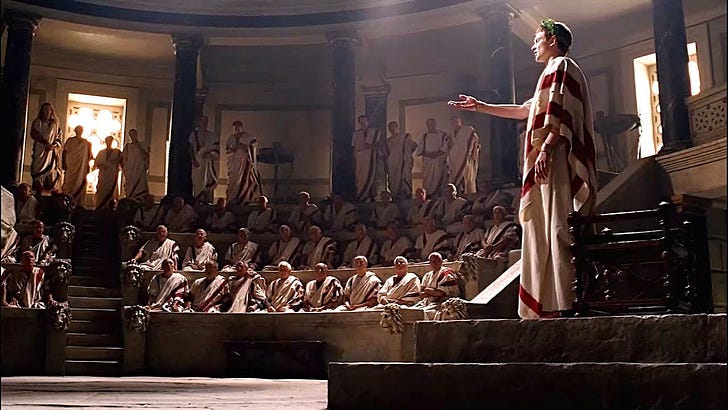How to Never Fail at Writing: Fiction Guide - The Importance of Oration - A Novice's Guide to Great Speech-Writing
Yay
I must ask that you all consider upgrading your subscription to the yearly one, it is only 8$, and helps us go a long way towards publishing Brotherhood of the Gemstone. Thanks, now on with the essay. Or if you’re feeling truly generous check out our Crowdfund.
This essay will encapsulate the ‘Oration’ that is to say Speeches in fiction, and how to write…



